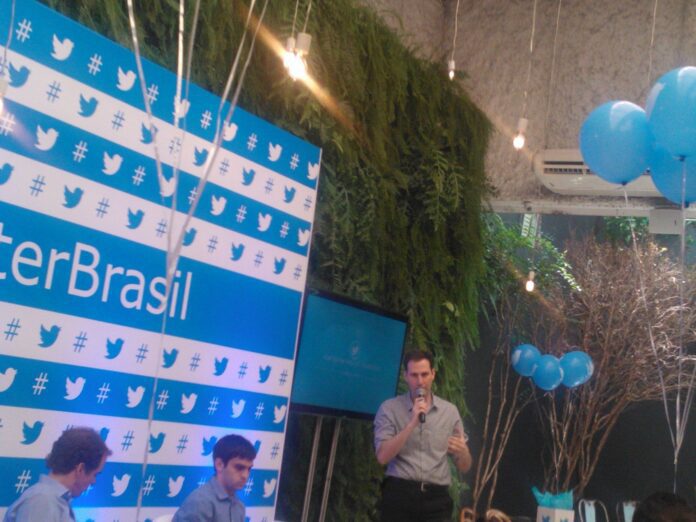Telecom operators in Brazil have closed deals with the administrations of the Itaquerão stadium in São Paulo and the Arena da Baixada in Curitiba for the deployment of indoor wireless coverage. The delay on closing trade agreements, which had started in May 2013, was becoming a concern for the operators as installing infrastructure takes about 150 days and those venues are about 90 days from beginning to host the World Cup.
The indoor coverage is currently undergoing final adjustments in the cities of Belo Horizonte, Brasilia, Fortaleza, Recife, Rio de Janeiro and Salvador. In Cuiaba, Manaus, Natal and Porto Alegre trade agreements have been finalized and installation has begun. According to operators, the indoor coverage will be similar to that used during the London Summer Olympics in 2012, and will meet the voice and data needs across 2G, 3G and 4G technologies. The installations across the 12 venues is expected to run $85 million.
Twitter on the rise in Brazil: Boosted by an increase in smartphone sales in Brazil, Twitter saw its mobile users surge from 40% to nearly 65% of its total base in the country over the past 13 months. Globally, 76% of Twitter’s active users are mobile.
In explaining drivers for the growth in Twitter usage across the country, Guilherme Ribenboim, manager director of Twitter Brazil, cited the increase in smartphones penetration; the strong tendency for Twitter to be used on the second screen (when users watch TV and are also reading their Twitter timeline); and the partnership with local wireless carriers Claro, TIM and Oi to provide free data for those who access Twitter.
Brazil is among the five largest markets for Twitter, despite the company having opened a local office in late 2012. Currently Twitter has two offices in the country located in São Paulo and Rio de Janeiro and around 40 employees.
In growing usage, Twitter bet on adapting its mobile application to be used on devices most use by Brazilians: entry-level devices with Google’s Android operating system, smaller screens and minimal memory. In addition, Twitter executives are working to sign partnerships with cellphone and TV manufactures to embed the Twitter app, as well as improving relationships with telecom operators to encourage their subscribers to use the social media platform.
Ribenboim told journalists that Twitter is focused on being the leading platform for the second screen. In other words, making users prefer Twitter to Facebook. As of today, 60% of Brazilian users follow TV shows via Twitter.
Ribenboim also denied that Twitter had sponsored Ellen DeGeneres’s “selfie” post from the Oscar Awards that is currently the most re-tweeted post.
Telefonica in Venezuela: Telefónica is reportedly set to double its investment in Venezuela despite the fact it is having trouble repatriating more than $2.7 billion in profits from the country. The company plans to invest more than $1.3 billion in its Venezuelan operations this year, which is a 95% increase over 2013.
Telefónica said it surpassed four million smartphones sold in the country last year; more than doubled its 3G data traffic; and ended 2013 with 11.7 million connections.
More news from Latin America:
- Chile’s No. 2 wireless operator Entel posted the market’s strongest customer growth over the past six months, which JPMorgan Chase & Co. said positions the carrier to offer faster growth than competitors at an attractive price.
- Cuban state-owned telecom monopoly Empresa de Telecomunicaciones de Cuba surpassed the two million prepaid mobile customers.
- Brazil’s Oi said it has reached the Amapá region with fiber optic capabilities designed to improving broadband Internet connectivity for the state. Oi said its fiber optic network now reaches 4,850 of 5,561 municipalities in the country.
- State-backed Ecuadorian operator CNT set a 2014 investment budget of $499 million.
- Colombian state-owned telecom operators Une-EPM and ETB plan to invest $244.5 million and $391.3 million respectively to expand their networks in 2014.
- Peru selected Telcordia as its number portability administrator.
- América Móvil announced a proposal for a dividend payment and an amount to repurchase shares.
- Tigo Colombia is said to be working on increasing its LTE coverage in the country, with the goal of reaching 250,000 to 300,000 high-speed Internet users by the end of 2014.
Wondering what’s going on in Latin America? Why don’t you follow me at Twitter?


